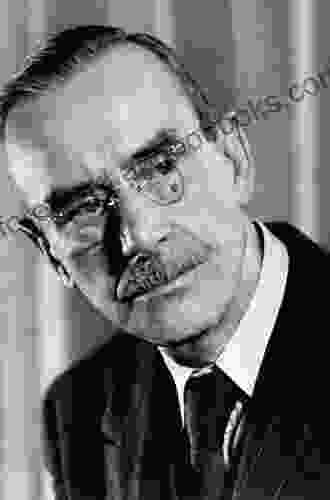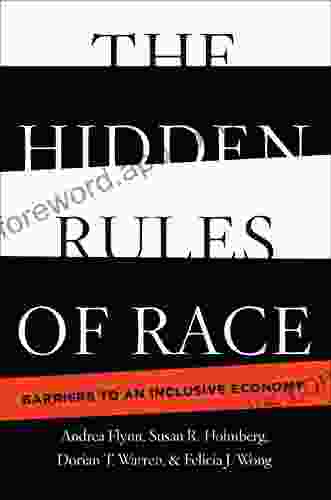Economics and Social Identity: Uncovering the Hidden Forces Shaping Economic Behavior

4.7 out of 5
| Language | : | English |
| File size | : | 1631 KB |
| Text-to-Speech | : | Enabled |
| Screen Reader | : | Supported |
| Enhanced typesetting | : | Enabled |
| Word Wise | : | Enabled |
| Print length | : | 224 pages |
Imagine a scenario where two individuals, both with the same qualifications and experience, apply for the same job. One belongs to a majority group, while the other is a minority member. Research has shown that the minority applicant is less likely to be hired, even though they may be equally qualified. Why is this the case?
This is just one example of how social identity can impact economic outcomes. Economics and Social Identity explores the profound influence that social cues, group dynamics, and cultural norms have on our economic behavior. By delving into the intersection of these two fields, we gain a deeper understanding of the complexities of human decision-making in economic contexts.
Key Concepts
At the heart of Economics and Social Identity lies the concept of social identity theory. This theory proposes that individuals derive a sense of belonging and self-worth from their membership in social groups. These groups can range from ethnic and racial groups to religious affiliations, social classes, and even workplace teams.
Our social identity influences our economic behavior in a number of ways. For example, we may be more likely to Free Download products or services from companies that are associated with our social groups. We may also be more likely to donate to charities that support causes we identify with.
Group Dynamics
The dynamics within social groups can also have a significant impact on economic behavior. Research has shown that individuals who are part of cohesive and supportive groups are more likely to engage in cooperative behaviors, such as sharing resources and helping others. Conversely, individuals who are part of conflict-ridden or competitive groups are more likely to engage in self-interested behaviors, such as free-riding and cheating.
Cultural Norms
Cultural norms are another important factor that shapes economic behavior. These norms are the unwritten rules and expectations that govern behavior within a society. They can influence everything from our spending habits to our work ethic.
For example, in cultures that place a high value on individualism, people are more likely to pursue their own self-interests, even if it comes at the expense of others. In cultures that place a high value on collectivism, people are more likely to cooperate and work together, even if it means sacrificing their own individual goals.
Economics and Social Identity provides a comprehensive examination of the ways in which social identity, group dynamics, and cultural norms shape economic behavior. By understanding these factors, we gain a deeper appreciation for the complexities of human decision-making and the challenges facing policymakers and business leaders.
This book is an essential read for anyone interested in understanding the intersection of economics and sociology. It offers a unique perspective on the factors that influence economic outcomes and provides valuable insights into how we can create more just and equitable societies.
4.7 out of 5
| Language | : | English |
| File size | : | 1631 KB |
| Text-to-Speech | : | Enabled |
| Screen Reader | : | Supported |
| Enhanced typesetting | : | Enabled |
| Word Wise | : | Enabled |
| Print length | : | 224 pages |
Do you want to contribute by writing guest posts on this blog?
Please contact us and send us a resume of previous articles that you have written.
 Book
Book Novel
Novel Page
Page Chapter
Chapter Text
Text Story
Story Genre
Genre Reader
Reader Library
Library Paperback
Paperback E-book
E-book Magazine
Magazine Newspaper
Newspaper Paragraph
Paragraph Sentence
Sentence Bookmark
Bookmark Shelf
Shelf Glossary
Glossary Bibliography
Bibliography Foreword
Foreword Preface
Preface Synopsis
Synopsis Annotation
Annotation Footnote
Footnote Manuscript
Manuscript Scroll
Scroll Codex
Codex Tome
Tome Bestseller
Bestseller Classics
Classics Library card
Library card Narrative
Narrative Biography
Biography Autobiography
Autobiography Memoir
Memoir Reference
Reference Encyclopedia
Encyclopedia Ellen Israel Goldberg
Ellen Israel Goldberg David J Melling
David J Melling David Guttmann
David Guttmann Gerald L Karwowski
Gerald L Karwowski Keith Pond
Keith Pond Mark Frost
Mark Frost David Novak
David Novak Mark Gerzon
Mark Gerzon Terry Dalrymple
Terry Dalrymple Pamela H Mackellar
Pamela H Mackellar Gary C Woodward
Gary C Woodward David Preston
David Preston Joe Klein
Joe Klein Eric Sellin
Eric Sellin Rick Townsend
Rick Townsend David Chandler
David Chandler Jolene D Smyth
Jolene D Smyth Sabrina Devonshire
Sabrina Devonshire Heidi Wong
Heidi Wong Paul Engel
Paul Engel
Light bulbAdvertise smarter! Our strategic ad space ensures maximum exposure. Reserve your spot today!

 Wayne CarterUnlock Your Financial Potential: Discover the Power of The Five Star Plan by...
Wayne CarterUnlock Your Financial Potential: Discover the Power of The Five Star Plan by...
 Miguel de CervantesThomas Mann In English: A Comprehensive Guide to the German Literary Giant
Miguel de CervantesThomas Mann In English: A Comprehensive Guide to the German Literary Giant Alan TurnerFollow ·3.4k
Alan TurnerFollow ·3.4k Terry PratchettFollow ·9.5k
Terry PratchettFollow ·9.5k Chase MorrisFollow ·15.7k
Chase MorrisFollow ·15.7k Grayson BellFollow ·3.8k
Grayson BellFollow ·3.8k William FaulknerFollow ·18.2k
William FaulknerFollow ·18.2k Harry CookFollow ·7k
Harry CookFollow ·7k Israel BellFollow ·13.1k
Israel BellFollow ·13.1k Mario Vargas LlosaFollow ·11.6k
Mario Vargas LlosaFollow ·11.6k

 Douglas Powell
Douglas PowellEscape into a World of Sweet Love and Second Chances with...
Prepare yourself...

 Garrett Powell
Garrett PowellMaster Badminton: A Comprehensive Guide to the Thrilling...
Are you ready to step into the world of...

 Deacon Bell
Deacon BellTrailer Park Trickster: The Adam Binder Novels
Book 1: The...

 Oscar Bell
Oscar BellLeo: The Very Modern Taoiseach
Leo Varadkar's journey...
4.7 out of 5
| Language | : | English |
| File size | : | 1631 KB |
| Text-to-Speech | : | Enabled |
| Screen Reader | : | Supported |
| Enhanced typesetting | : | Enabled |
| Word Wise | : | Enabled |
| Print length | : | 224 pages |












